
Recently on Cyclingnews.com |
An interview with Fred Rodriguez, November 1, 2005
Fast Freddie focuses on young riders
Fred Rodriguez knows how hard the journey to the top echelon of professional cycling is - and he wants to make sure the young riders following his generation of successful American racers have at least as much support, if not more, in doing so. That is why he is backing a new developmental program emerging in his home region of Northern California. Cyclingnews' North American Editor Mark Zalewski checks in with Fast Freddie to get the lowdown on his plans for junior riders.
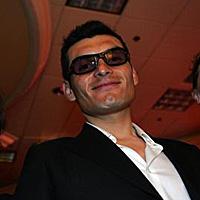
|
Together with the support of Charlie Moore of McGuire Realty, and Laura Charameda of the local junior project Team Swift, a new developmental outlet for junior racers is set to emerge; the goal is to give young American riders the opportunity to make the transition from amateur to professional racer. "Back when I was an amateur we had a lot of feeder developmental programs for the national team, where they allowed us time to work with the national program and support us in our area," says Rodriguez. "For me it was Paul Mitchell/Spago. They basically supported me while I was home and allowed me to keep racing, and further develop myself with the national team. The pprogramriority for them was development."
Except for a very few programs in the U.S., like the largely successful TIAA/CREF scheme, directed by a fellow product of Rodriguez's generation Jonathan Vaughters, there is a lack of infrastructure to support riders when they are at the crucial stages before embarking on a career of racing. The times have simply changed, and Fast Freddie wants to bring the support structure back. "There were a lot of programs at the time - amateur programs is what they were called then, and there were [separate] pro teams. Now that everything has basically gone pro there has been a lack of focusing on just development, because it falls into the category of supporting your sponsors. Now a lot of the programs are about having a pro team and there are mixed signs for the developing riders. So what we want to do is have a direct path with what I feel, being one of the guys who made it to the division 1 racing of cycling, and what I feel it takes to get there - the right path."
Rodriguez recognises that there are a lot of unknowns for young riders, because he was once among the junior ranks. "When you are 18...I didn't know back then, I was just following what people were telling me. And I was hoping I was making the best decisions at the time. To tell you the truth, the path is very narrow. If you look at the history of the guys who made it - Bobby Julich, Lance Armstrong, George Hincapie, Jonathan Vaughters - how did these guys get to division 1 cycling? What was the path?"
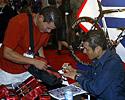
|
For them, the path was straight through USA Cycling's national team, and Rodriguez wants to mould his program around the efforts of the U23 national team to maximise exposure for riders in Europe, along with the right amount of racing year round. "We all went through the national team program. So basically for a development team, priority number one should be 'what does the national team want out of these riders?' And work with them to say, 'You should be looking for this too.' Hopefully helping riders by saying, 'When you aren't racing with the national team, we are here in the local Northern California area to back you up. So you come back and do your nationals, Superweek and other key events that are big U.S. races. That way, if the riders show that they have what it takes to go to the next step and shine, they need to do it at the national team level - Tour de l'Avenir, World Championships - races where the division 1 teams are looking. I think that is the right path, the path we all took. That is what we are trying to offer."
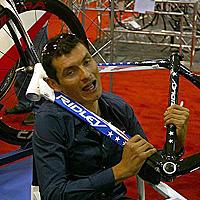
|
However, there are some that believe USA Cycling hasn't been investing enough in tomorrow's riders, but Rodriguez thinks the governing body has done what it can at the very top levels, and now needs to begin making deeper inroads down the age brackets of new talent - something this new team hopes to help foster. "I think [USAC] has done a good job at the elite level of developing young riders - when you see Saul and Tyler Farrar come out of the program. What's lacking is at the ground level, the local support. Who do you blame? It's hard to say. USA Cycling can only do so much and has to concentrate on taking what they have and making it better. What we want to create for them is something that fills those voids. The goal would be for our team to catch on and for a lot of people to realise that this is something unique - and then have other programs start in other areas to make this really competitive. We don't want to be the only team competing for these spots. We want other teams to know the exact formula, so that the events are competitive. Only the best are going to make it."
The new program is being born out of an existing one called Team Swift, led by the successful women's racer Laura Charameda. McGuire Realty, formerly sponsors of a professional men's and women's team in the U.S., are switching gears to focus on the foundation of the sport. "It all started with Team Swift," Rodriguez explains. "Laura Charameda has gotten together with McGuire Realty to start a developmental program. We would always talk about how we were lacking that last step. We had a junior program in the bay area in Northern California but we wanted a feeder program. The goal was to create something to bring the youth to the next level. I had just started the Fast Freddie Foundation and started getting involved in other programs like the NorCal Mountain Bike League. I wanted to take it a step further, and this is a perfect opportunity. So we met with Charlie Moore of McGuire Realty, and he is super excited that I was getting involved, so it turned into this unique opportunity."
Education still the key
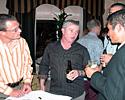
|
One of the tenets of Freddie's idea is to keep education, particularly beyond high school, an option for the riders. This is especially important when talking with parents, many of whom have obvious concerns about the impact full-time racing and training will have at an important time in a young person's education and career. "One of the big concerns that I have always had with other programs is parents wondering, 'What does this do to my kid's education? Because he is telling me he wants to go to Europe at 18...' And the parents are freaking out. They are trying to be supportive of their child's sport but at the same time trying to hit the brakes so that they don't neglect school. So this is an added benefit. Look at the numbers; how many development kids make it? Very few. My goal is to create options. And I think USA Cycling is trying to revamp their collegiate program."
Higher education is another untapped opportunity in Rodriguez's mind that can really make a difference for some riders deciding whether to try racing or pursue a college degree. "I want to get involved in helping the lack of collegiate programs. One goal for me is to somehow give the opportunity for athletes who also want to go to school. Do a collegiate program in the winter and then know that they have a team for them to come back to during the year, while allowing them to continue with school. I feel that is one of the reasons we are gearing towards under 25-year-olds. At Under 23 level most riders aren't ready to go pro. If they go to college they are not doing it full time, so they are taking smaller steps. But if you look at all major sports, that's where it's all geared towards - developing athletes so that when they are older you know what you are really getting. Sometimes with the younger athletes you are gambling on what's going to happen. The longer you can keep them at a developmental stage the more you are going to know if this is the athlete that can make the next step to go pro."
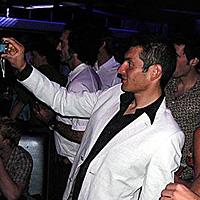
|
Freddie's work in this area is already reaping results, albeit on a smaller scale. The NorCal high school plan enjoys the support of the Fast Freddie Foundation. "One of the programs I already support, NorCal, is really evolving. A lot of schools are involved in the racing, and it feels like a school sport. There is a varsity team, a JV team, so they get that feel they are a part of a school program. What I've offered to their program, to give it that extra feel that it leads to a collegiate program, is a Fast Freddie Scholarship to the MVP of the year. This year it was a $1,000 for a male and female to continue on at a collegiate program. What has sparked from this is the fact that programs like Cal Berkeley and Stanford are coming to the league finals and scouting. 'You should come race for our team!' It's creating an atmosphere that says to kids there is somewhere to go after high school with their bike."
Will cycling rival college football for the millions of dollars colleges devote to their programs? Not any time soon. But making college a possibility alongside racing and training is one way to make the possibility of a future Fred Rodriguez more plausible for a lot of young riders. "Our main focus is to develop riders," Rodriguez says simply. "We are going to pick up riders that we see have what it takes and are willing to give what it takes to follow these steps. Our niche is that we are trying to create for them the best path to get where I am."
